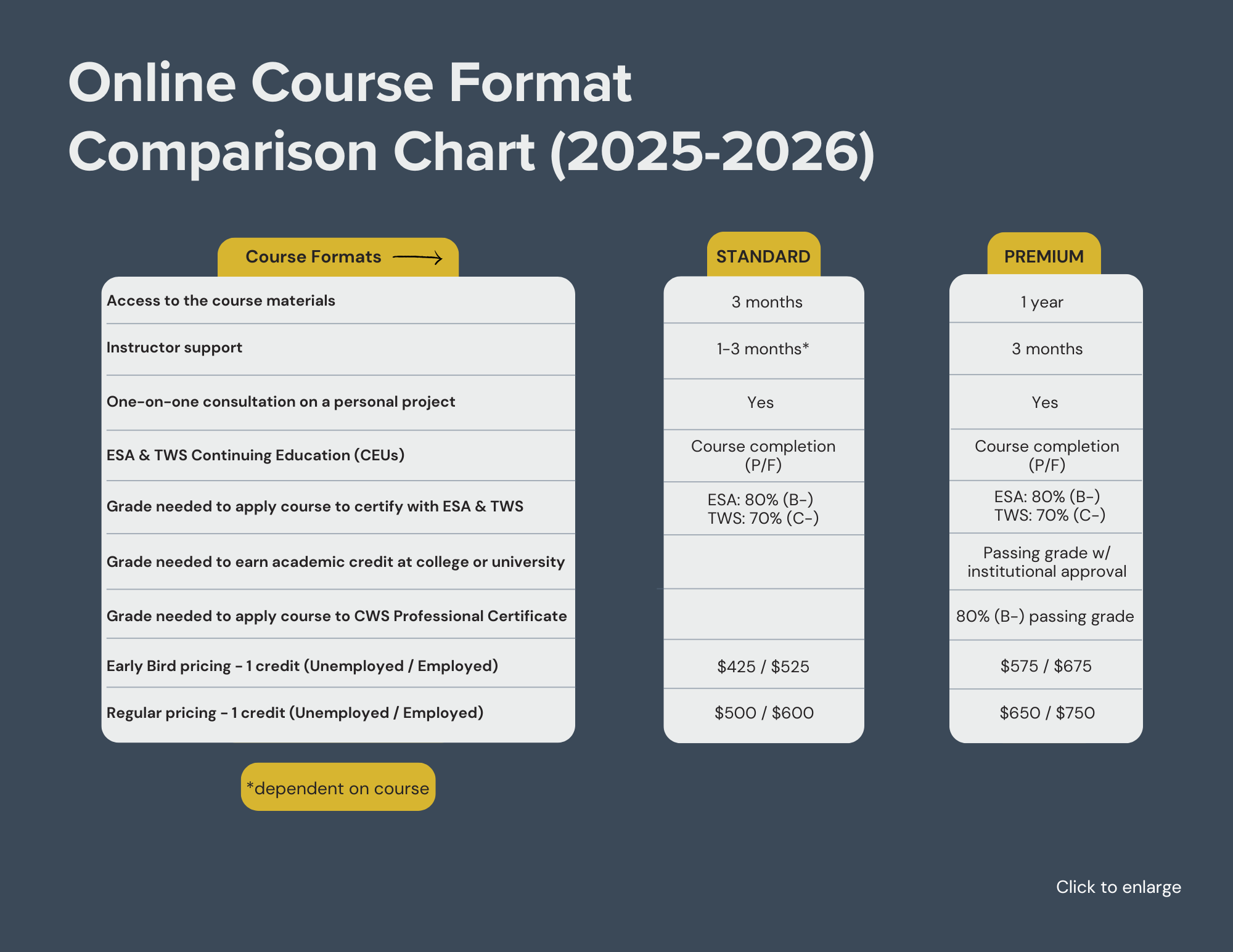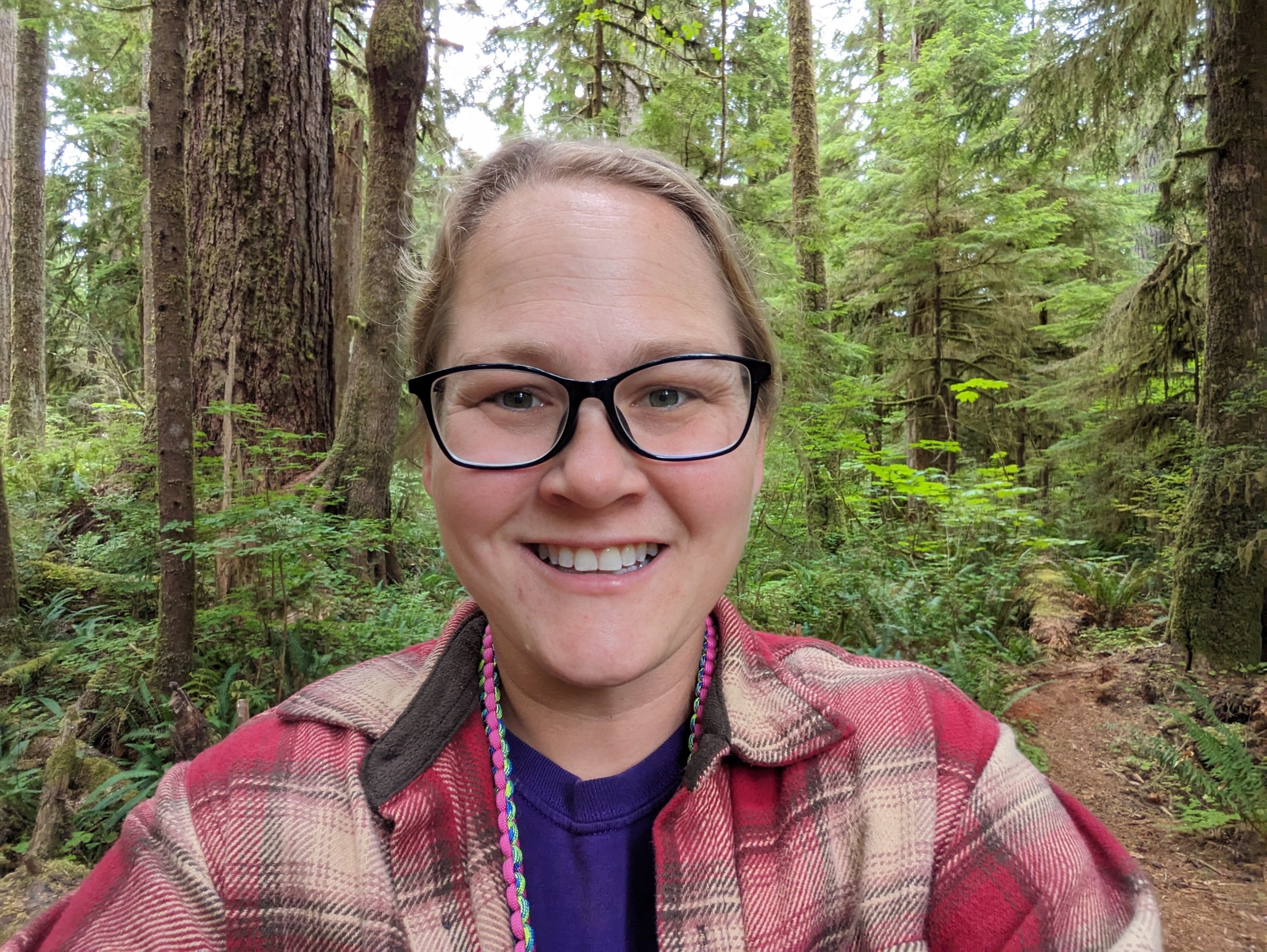-
The world is increasingly urban, and understanding human-wildlife interactions and conflict is critically important when developing conservation strategies. Conducting ecological research in human-dominated landscapes such as cities, villages, and farmlands presents a unique set of challenges ranging from vandalism to poor buy-in by residents. In this class, learn best practices for conducting research in human-dominated landscapes, including both recommendations for practical considerations (e.g., safety) and ways to explore and integrate the sociodemographic landscape into a robust research design that investigates how wildlife and people utilize shared landscapes
-
Summer: June 1 – August 23, 2026 (Early bird ends May 3rd)
*Early bird saves $75
-
None
-
Identify and explain key features of human dominated landscapes (HDL)
Compare and contrast between different types of HDL.
Identify important social, economic, environmental, and ecological variables to include in HDL wildlife studies.
Choose appropriate data and adjust established research methods for working in HDL.
Generate a relevant scientific question and appropriate sampling method for wildlife research in HDL.
COURSE OPTIONS & INFORMATION (Review chart above, then click below)
-
FORMAT:
3 months of access to course materials as you work at your own pace
Get instructor support for the 3-month term via email, discussion threads, group meetings, and one-on-one appointments
After working through the course materials, set up an optional meeting with the instructor to discuss your own personal project from work or school
CONTINUING EDUCATION:
16 CEUs with The Wildlife Society
4 CEUs in Category I(a): Scientific Education and Training with the Ecological Society of America (go to our Continuing Education Page for more details)
CERTIFICATIONS:
Earn 1 credit toward certification as an Ecologist (at any level) with Ecological Society of America
Earn 1 credit toward certification as an Associate/Certified Wildlife Biologist® (at any level) with The Wildlife Society
-
FORMAT:
12 months of access to course materials as you work at your own pace
Get instructor support for the 3-month term via email, discussion threads, group meetings, and one-on-one appointments
After working through the course materials, set up an optional meeting with the instructor to discuss your own personal project from work or school
CONTINUING EDUCATION:
16 CEUs with The Wildlife Society
4 CEUs in Category I(a): Scientific Education and Training with the Ecological Society of America
Go to our Continuing Education Page for more details
CERTIFICATIONS:
Earn 1 credit towards a professional certificate in Applied Quantitative Ecology with CWS
Earn 1 credit toward certification as an Ecologist (at any level) with Ecological Society of America
Earn 1 credit toward certification as an Associate/Certified Wildlife Biologist® (at any level) with The Wildlife Society
ACADEMIC CREDIT:
Earn 1 academic credit (go to our Academic Credit Page for details)
Earn an additional 1-2 academic credits with an Applied Project
INSTRUCTOR
SCHOLARSHIPS
Full scholarships are available to participants from countries designated as “lower income” and “lower middle income” in the World Bank List of Economies. Please see our CWS World Scholars Program page for details.
CANCELLATION POLICY
Cancellations 30 days or more before the start date are not subject to cancellation fees. Cancellations <30 days before the start date are subject to a 50% cancellation fee. No refunds once the course begins.




